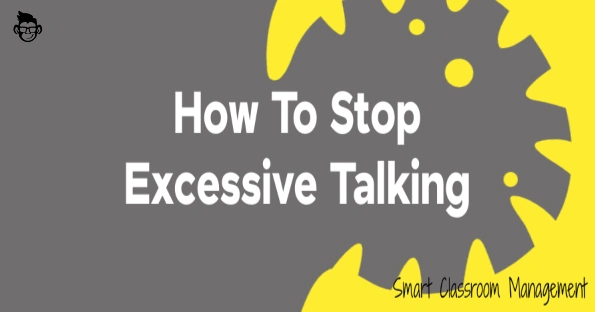
“My students are social butterflies.”
“Chatting is their learning style.”
“They’re an expressive, creative bunch.”
These statements and others like them are said as way of explanation. They are the reasons given for why the teacher is frequently interrupted.
And why the class is so noisy.
They’re spoken of as fact, as if there is little the teacher can do about it. It’s also why it continues to happen.
You see, whatever misbehavior you justify, you accept. If you view talking instead of listening or focusing on work as just who your students are, then it will never stop.
Because you’re removing your power to do anything about it.
Here at SCM, we believe that the entire premise that students are just the way they are, no matter the behavior, is hogwash. You decide how our students behave, not the other way around.
The truth is, the statements above are said by teachers who don’t know what to do about it. So they make excuses. They write it off as out of their control.
But like every area of classroom management, eliminating unwanted talking is simply a function of knowledge. It’s a matter of knowing what to do and then doing it.
That’s it.
In the case of talking, the solution is as follows:
Step 1 – Define when it isn’t allowed.
Step 2 – Explain why it isn’t allowed.
Step 3 – Model what silence does and doesn’t look like.
Step 4 – Show, by way of your CM Plan, what will happen if the rule is broken.
Step 5 – Enforce.
It’s important to point out that it’s your commitment to your students and protecting their right to learn without interference – as well as your belief in them – that empowers everything you say and do.
When you know your approach is right and best for them, and you know you won’t accept anything less, then your students will know it too. They’ll hear it in your voice and see it on your face. They’ll feel it in the air and experience it in your consistency.
It can’t be faked, nor can it be denied. They’ll believe it, accept it, and buy in.
Talking when your students are supposed to be listening or working independently is not “just who they are.” It’s not a learning style or a personality trait. It’s not a cutesy social quirk or an acceptable excuse.
It’s how you’ve allowed them to be.
PS – My new book Inspire will be available on October 4th.
Also, if you haven’t done so already, please join us. It’s free! Click here and begin receiving classroom management articles like this one in your email box every week.

Do you have tips for guest/substitute teachers?
Will your new book be a hard cover or an e-book?
Thanks.
Yes, tips for substitutes.
Hmmm, i’m going to have to float like a butterfly and sting like a bee and meditate well before and during school lol because the thing with me is that right now i’m practicing rules, routines, procedures, and expectations with my students but (in part because of my personality) I find myself feeling neurotic and obsessive compulsive when having to make sure no one ever breaks the code of integrity if they’re not following directions perfectly and having to be hyper aware of everything like a robot. Sure there’s around of nuance behind and around it all but I don’t want to make the same mistake that I made last year where it was just too much.
Takes a lot of skill and balance to set up and do things perfectly so that they can eventually evolve to something where I won’t have to be so on them. This website has been influential to me, very much so, and last year my class was very successful both academically and behaviorally (when with me), but I had to be “on it” and intense a lot, looking for a better balance this year.
Hi Michael,
I was just wondering what you do if a student has gotten a third warning and you learn after class that students have been teasing the student because of this (I am a French specialist teacher who has them a period a day). I think I have an idea of what to do but I wanted to ask you how you personally would address this.
Thanks for all your tips!
-Katherine
salut Katherine, je suis français et j’ai aussi les mêmes problèmes avec mes elèves qui ne font que parler?
Advise the offending students that the teasing is unacceptable. Seat them apart. Call parents of offenders. Advise counselor or social worker of problem. If high school age they can be given a detention for repeat offenders. Letter to parent. Parent and teacher meeting with offending students.
Much of the problem starts at the top. I’m an experienced sub, and one of the biggest challenges I have encountered is not the students, but weak, timid, unsupportive principals who want the students to “like” them and who are afraid of the students, and who thus are reluctant to enforce the school’s very rules and to hold students accountable, which, in turn, undermines the sub’s (and the regular teacher’s) authority in the classroom. Many principals are the strong leaders and managers that they must be— and I’m privileged to have worked under some of the best principals— but it seems that more and more principals are comfortable to sit back and take the easy road and collect a paycheck rather than do their job. Who is coddling those principals?